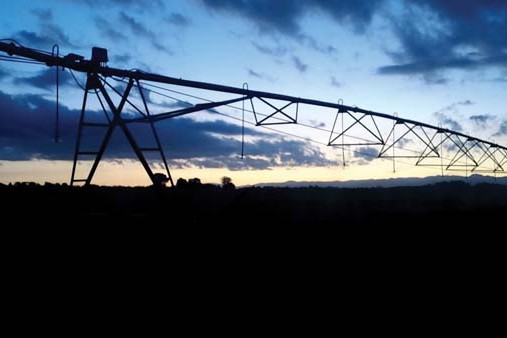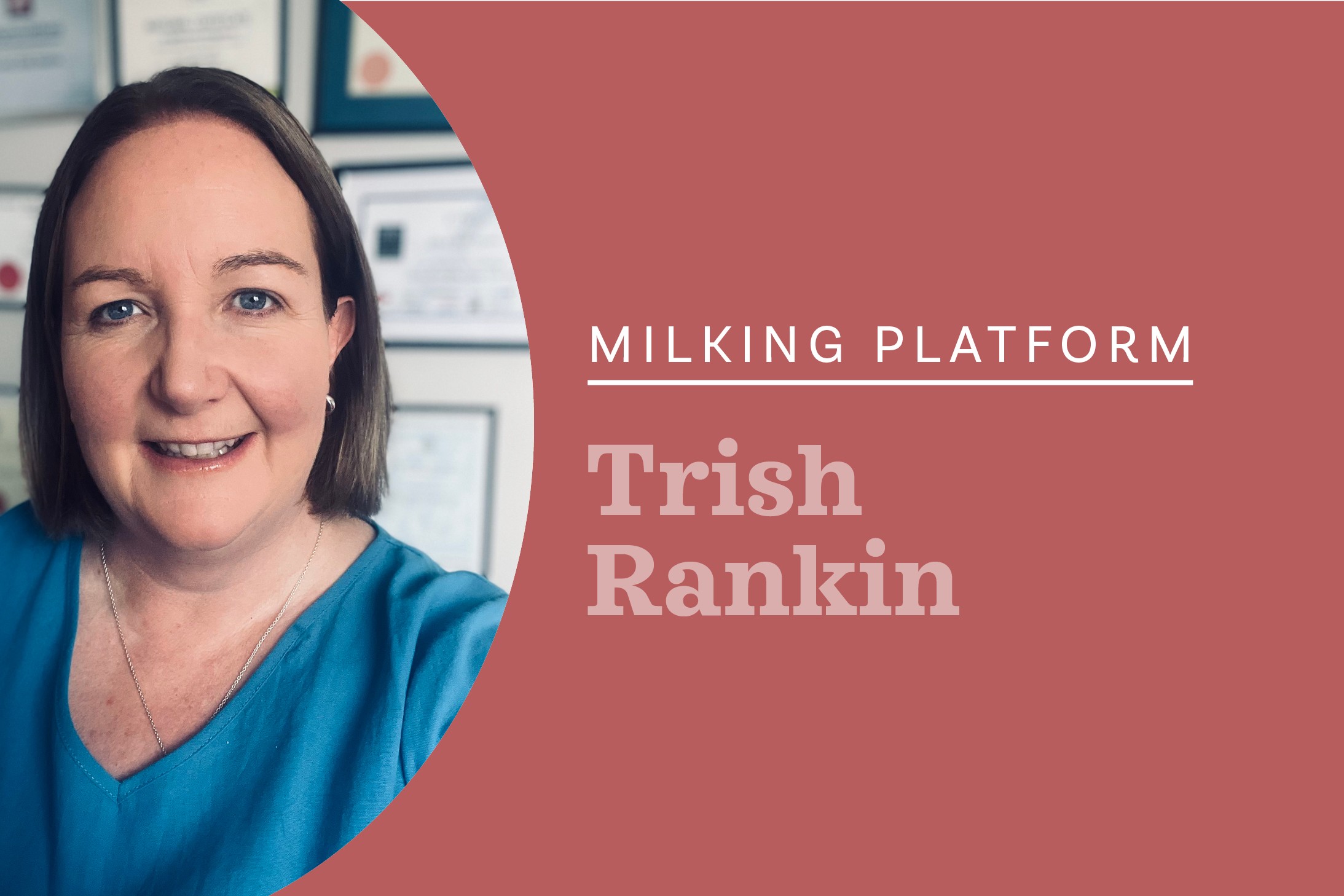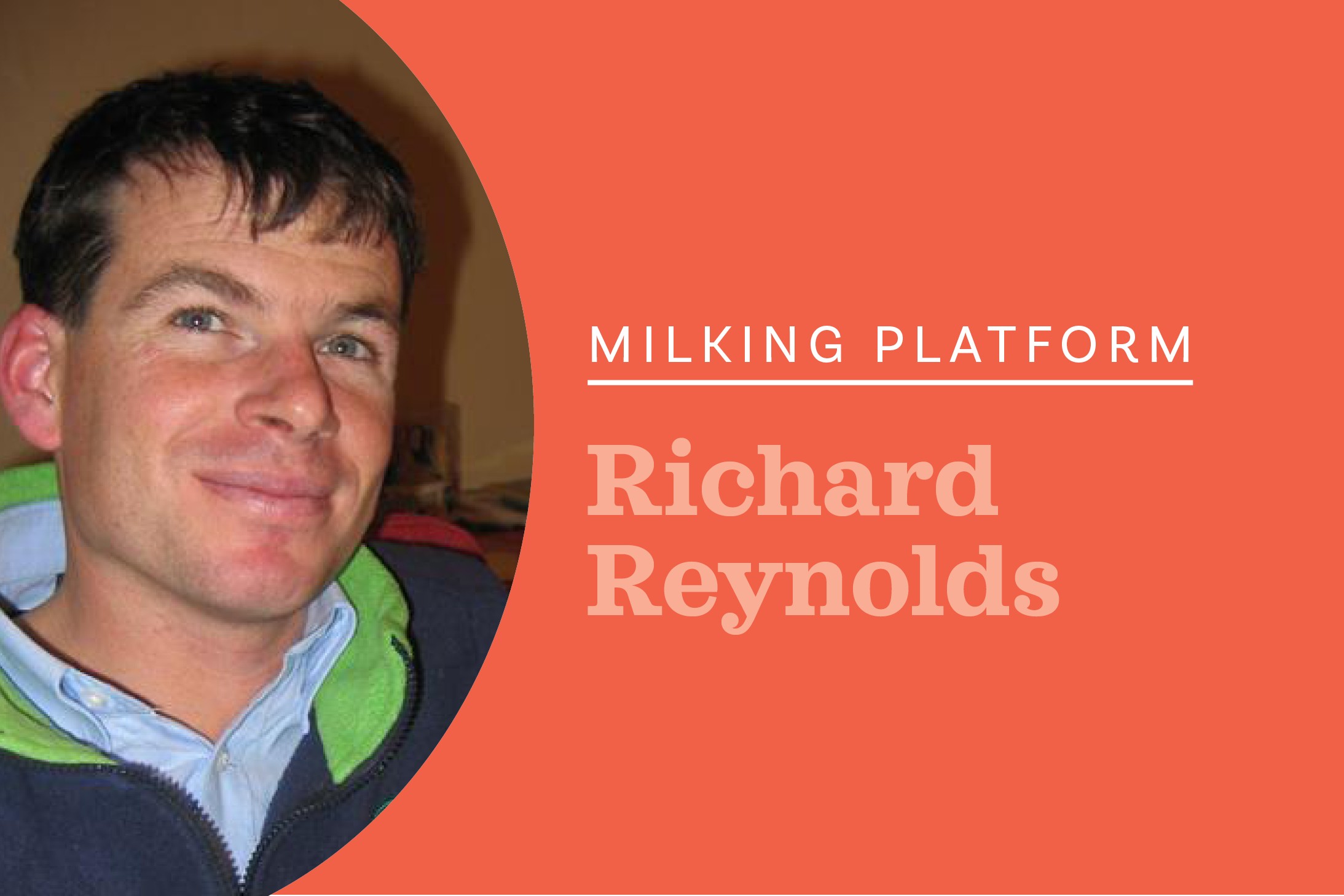Welcome to Farmer Time
Hundreds of kilometres from an Ashburton dairy farm, a group of primary school students are kept up to date on the farm’s busy activities. By Anne Hardie.

Every couple of weeks Ashburton dairy farmer Stacey Stewart uses her phone to video what is happening on the farm and sends it to a small urban primary school in Wainuiomata where students are transfixed by life on the dairy farm.
Students from Pukeatua Primary School have watched the cows being milked, hooves being trimmed, straw bales being stacked, the maize harvest and even a cow being calved. Down the track, Stacey will have the phone out to video artificial insemination as well.
She is one of an increasing number of farmers and growers around the country who are taking part in virtual classroom sessions called Farmer Time. The programme has been a huge success in the United Kingdom before being introduced into New Zealand last year, initially as a pilot programme and then expanded across agriculture and horticulture.
It is aimed at urban primary and intermediate-aged students and designed to inspire, engage and educate them about the origins of their food. Students chat live with their matched farmer from their classrooms, discussing what is happening on the farm and gaining an insight into what it is like to be a farmer and how their food is produced.
When Stacey saw a request for farmers to join Farmer Time, she put her hand up because she wanted urban kids to know more about farming and what went into producing milk.
“To me, it’s teaching them milk doesn’t come from a supermarket and doesn’t just come out of a carton.”
Stacey and her husband, Mark, with his brother, TJ, lease the third-generation Stewart family farm where they milk 550 pedigree Holstein Friesians on 213 hectares. What they do on Barwell Farm is now shared with their Wainuiomata class of students and their teacher Mark Williams.
Mark says the programme has led to amazing experiences for his students and been a real eye opener about the industry. An email about Farmer Time piqued his initial interest because he thought a farmer talking to his year six-to-eight students was better value than talking about farming himself. It was the real thing and it has led to experiences for the students that he never imagined.
Pukeatua is a small school in a low socio-economic area and Mark says some of his students have never been on a farm before.
“I thought, here’s an opportunity for someone other than me to give them an experience I can’t give them. Through Stacey and that online interaction with a farm, I thought my kids needed a chance to see a farm in real life.”
He contacted Fonterra about visiting a farm and that led to a bus trip paid by the company to Kaiwaiwai Dairies near Featherston, where students had a ride in the trailer to the dairy, watched the cows head in to milking, met the cows and watched them being milked.
“The guys were really engaged with the kids. Fonterra had a couple of people there and put on a barbeque for the kids and that all came about through Farmer Time. If I hadn’t joined Farmer Time, that wouldn’t have happened.”
It didn’t end there though. On the bus again, the class was taken to the local cheese factory where they saw brie being salted – the process had been delayed so staff could show the class how it was done. Mark says the day was “absolutely amazing” for the kids.
“The kids are still talking about it – it was the highlight of the term.”
He Mark says the experience showed his students that farming could be about robotics, engineering and far more than just milking cows which was a real eye-opener.
“For me, it’s a case that if we don’t introduce primary school kids to those things, it will be too late because the kids will have made their choices for their future by the time they reach high school. There is a chance that one of these kids may end up doing farming at some point.”
Back in the classroom, Mark says his students have been transfixed with Stacey’s videos and explanation of what is happening on the farm. One session showed the riparian planting along waterways to protect the environment and he says that slotted right into the sustainability topic being taught in schools.
“I want to continue doing it because next year I’ll have a different set of kids. The media narrative isn’t that great for farming and here are these farmers doing their absolute best. It’s a real eye-opener.”
The class has posted their farm experiences on the school’s Facebook page and are planning a story in the local paper which, he says, distributes the story further.
Alongside Farmer Time, the school is part of Hutt Science’s Moo to You initiative which provides resources to schools from pasture to climate change.
“It all comes together to produce the most amazing experiences for the kids. My interest is actively striving to see kids become the best they can be. It’s about how do we make this real for kids?”
Stacey says for her part, she just needs her phone and she has learnt how to edit, add text and voice over. That works better for her than an actual live video chat.
“It’s trying to work out how to get down to their level and not be boring. When we start talking AI, that will be interesting.”
She is not holding back from the reality of farming. When she videoed the cow being calved, the calf was born dead and she did not try to hide that from the kids.
“I’ll keep doing (Farmer Time) until I run out of stuff to say. Though the class changes each year, so as long as the programme has support, you can’t run out.”
Farmer Time national coordinator Marie Burke says teachers without any rural background are learning as much as the students, while farmers and growers are also learning from their class.
“It’s connecting us with our consumers and it has been insightful. We learn what children think about farming and there’s a huge range of thoughts which are all valid but not always based on fact. Enabling the children to see things for themselves and ask questions is so educational.”
Marie and her husband have been part of the programme with their own farm near Gisborne which includes a 40ha crop of sweet corn and she says the students were enthralled about how it was grown. They were fascinated about how many times a vehicle went across the paddock to get the corn to harvest stage and “gobsmacked” at the work, effort, fuel and costs of growing the vegetable.
Farmers can use video chat apps for the programme and talk to their matched class from the farm to show them what is happening in real time or take videos and share it from the office. Chats happen every two weeks and last about 15 to 20 minutes.
Farmer Time in NZ focused initially on sheep and beef farming as Beef and Lamb New Zealand ran the pilot programme and now the programme is extending across the primary sector as demand ramps up. Last year 41 farmers took part in the programme including nine dairy farmers, a few dairy grazers and one farmer milking sheep.
This year, 15 farmers were matched with a class in the first school term and 20 began in term two. Marie says a few more farmers are waiting for the next teacher to sign up so they can get underway.
“The growth of Farmer Time relies on the generosity of farmers donating their time and teachers recognising the value of the experience for their students.”
She says she would like every urban class in NZ to talk to a farmer so the more people who sign up via the website, the better.
More about the programme as well as stories shared by farmers, growers and teachers can be viewed at farmertime.co.nz





